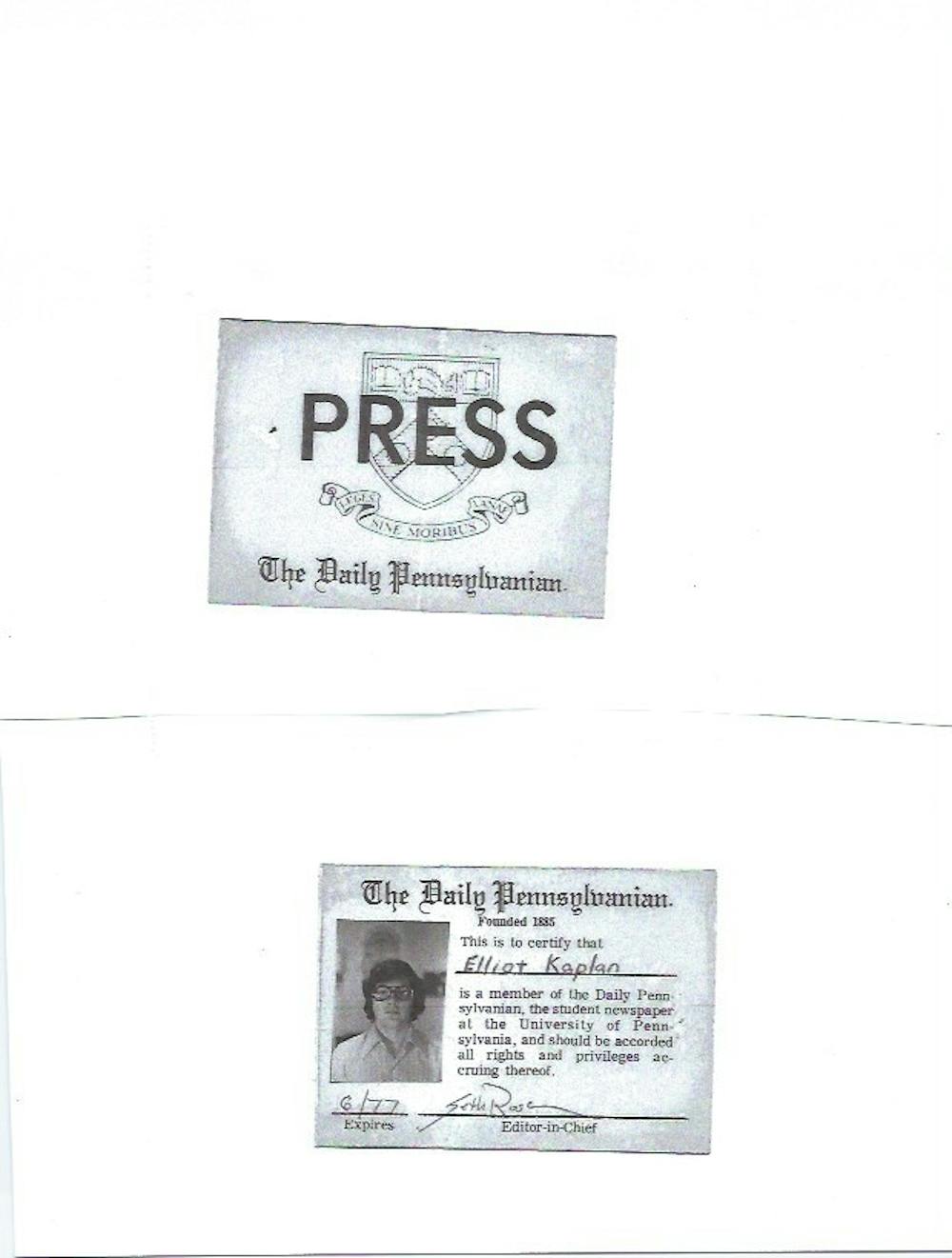Eliot Kaplan was Co–Editor from January 1977 to Janurary 1978.
This piece is part of a series of personal narratives written by Street alumni in order to celebrate the 50th anniversary of 34th Street.
34th Street was always the runt of the litter. The DP was more hard–core news back then and Street was seen as a money losing, lightweight, potentially legally–troublesome annoyance.
Yeah, so what’s your problem?
At the time the paper had an officious four–named business guy who was always threatening to close the damn thing down. We were a mere eight pages, twelve on a good week and at one point were forced to take on TV listings to keep the magazine afloat. I later convinced one of my fraternity brothers to come in and sell ads exclusively for Street. It kept us going. He went on to retire in his 40s from Goldman Sachs.
I started off at the paper as a sports reporter—working my way up from freshman lacrosse to sprint football to varsity basketball (the year BEFORE the team went to the 1979 Final Four!)
Partly because my roommate would have run against me for sports editor and partly cause I would rather work 20 hours a week than 40, I applied instead for 34th Street co–editor after having written some features for Charlie Service (W ’77) and Lu Anne Stewart (née Tracey) (C ’77).
I have my bound volume in the basement but, frankly, I’m afraid to look. I might move rapidly from mortification to laughter but better to remember it as if I were still 21 and in full glory.
I’m not the first editor to realize this, but mainly the whole endeavor was an ego trip, centered around writing a humor column that was a blatant rip off of Woody Allen and Buzz Bissinger (C ’76), who preceded me at the paper by a few years. It was all about my inability to get girls, which, turns out, can be a pretty good way to end up getting girls.
But I digress. We also did journalism. Long–form narrative features, or what we then simply called “stories.” The reporters got out and about, mostly diving into ideas that interested them, which is a pretty good early lesson on what to do as an editor. Find passionate reporters and (mostly) get out of the way. They did top notch stories on corrupt state senators, Gamblers Anonymous, Kent State revisited, an early look at the neighboring West Philly radical organization MOVE. Plus lots of l o n n g and earnest reviews of theater, film and art.
I do remember a good headline I wrote. It was for a story on Annenberg dean George Gerbner and his theories on why television could be so corrupting and dangerous. “Rare is the Medium Well Done.” Not bad. Sure it was ripped off from somewhere.
Wednesdays were our all–nighters (as opposed to pretty much every day for that aforementioned sports editor roommate who was literally touch and go to make the graduation rolls.) We would “lay out” the paper, which hey, kids, is actually just what it sounds like. Cutting and pasting typeset stories with a T square in the composing room, mellow WMGK in the background, the grownups Rita and Wendy doing the heavy lifting and keeping us from Tarantino–ing each other with X–ACTO knives. My layout contribution consisted of finding single little letters to cover typos and then gluing them on the page. When the magazine came out, you could usually see my crooked technique.
I’m so glad Street survived. And sounds like it’s kicking ass. I’ve met some of the editors over the years and we all have a bit of the outsider with a chip on the shoulder thing. Keep it there. You’ll need it later in life.
And Street helped me survive. In my early 20s, I was foundering after some personal tragedies. Had completely lost my way and had no idea what made sense anymore. I thought back to my days as the editor of 34th Street. I had been happy then. Assigning, editing, pushing and pulling with writers, writing funny headlines, verbally primping for the opposite sex, thinking it up, carrying it through, pulling it off. Seeing it show up in your hands. Starting again.
I ended up doing that for most of my professional life. There are a hell of a lot worse ways to go.
Eliot Kaplan recently retired as Vice President of Talent Acquisition at Hearst Magazines. He was formerly Editor–in–Chief of Philadelphia Magazine and Executive Editor at GQ.







